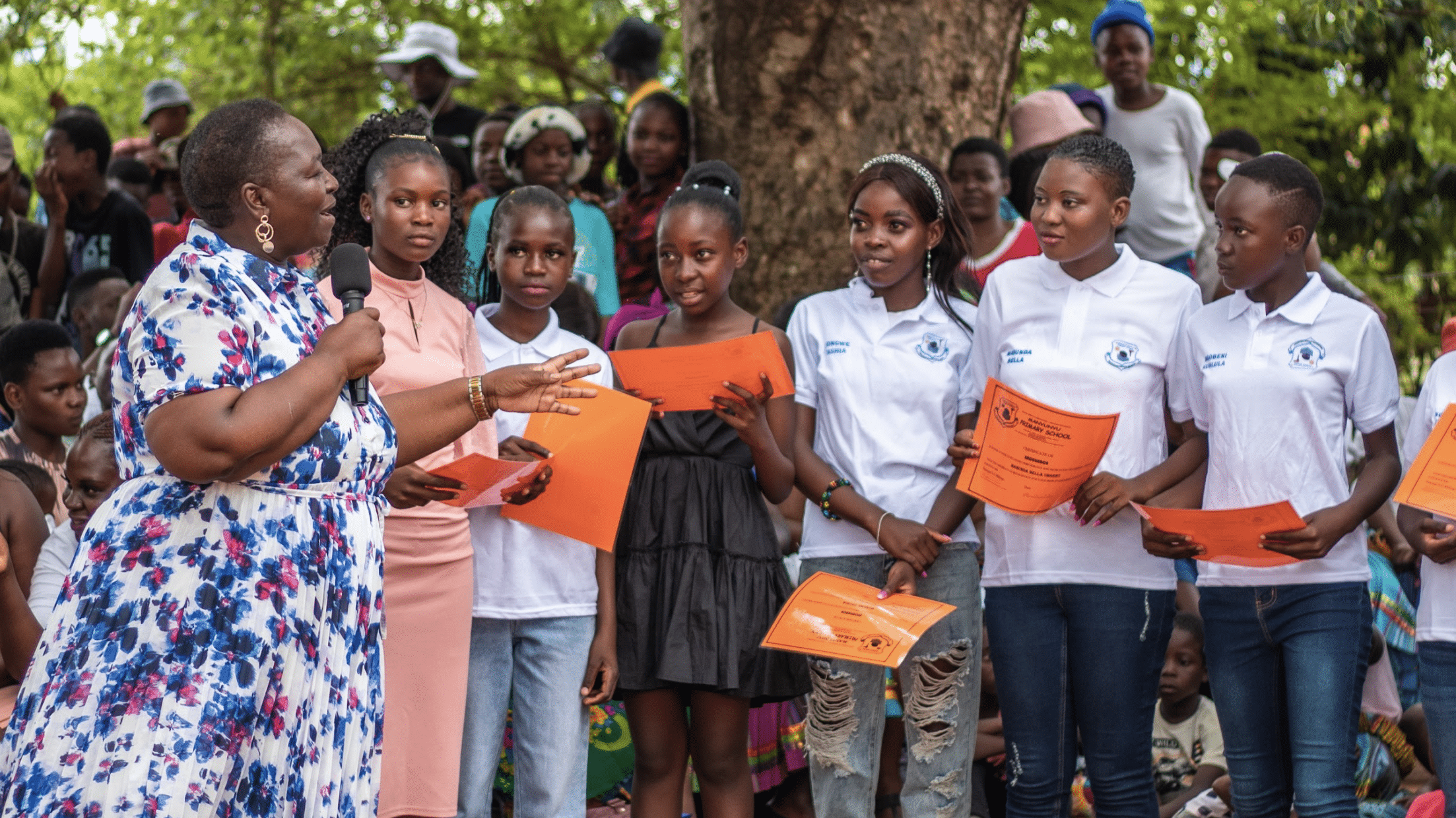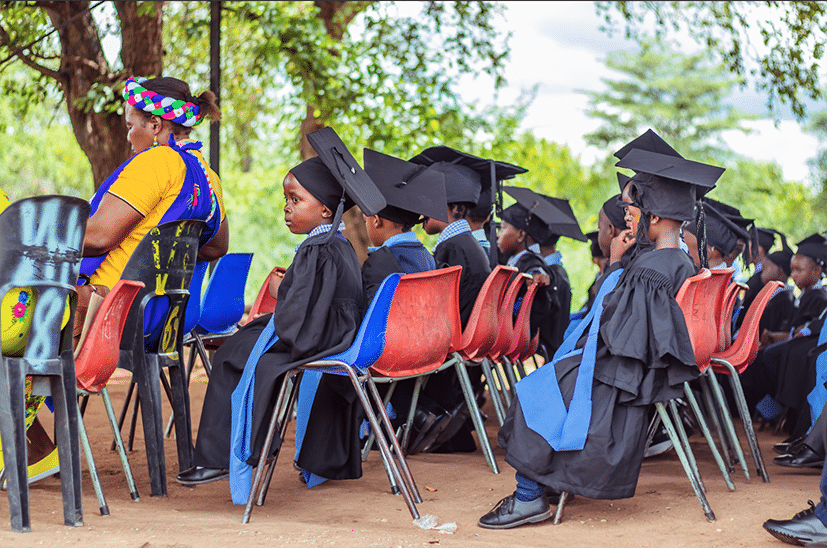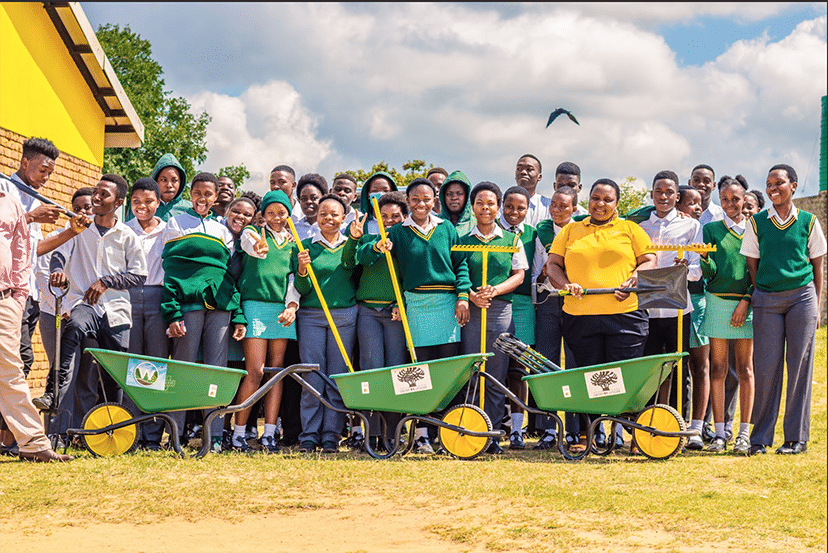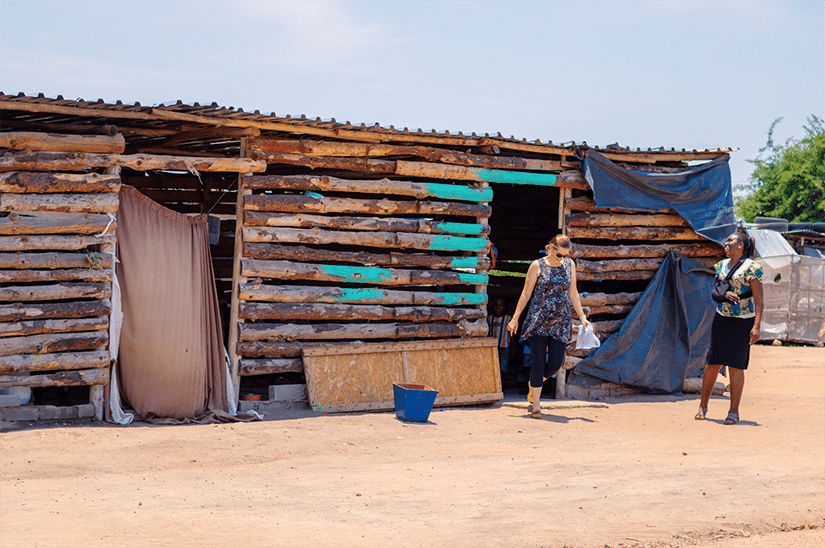N’wamitwa, Greater Tzaneen, Mopani District Municipality, Limpopo, South Africa, GPS coordinates: 23°43’8937″S 30°25’0827″E

Kaross Foundation started it’s programmes in 2016 to improve the lives of the employees of it’s founding entities – Groep 91 Uitvoer and Karosswerkers. Since the start, improving the quality of education has been part of its mandate. However, in 2020, the focus shifted completely towards improving education in the broader community of the Mopani West District.
The following schools form part of our Kaross Foundation community and the number is growing each year:

Vhulakanjhani Primary School
Manyunyu Primary School
Nwajaheni Primary School
Nyavana Primary School
Fofoza Primary School
Nkambako Primary School

Mahwahwa Secondary School
Solani Samson N’wamitwa Secondary School
Gwambeni Secondary School
Mapheto Secondary School
Mugwezeni Secondary School
Lwandlamuni Secondary School
Mark Shope Secondary School

Ahitirheni Daycare Centre
Babanana Daycare Centre
Dyonzakani Daycare Centre
Hlamalani Daycare Centre
Kuvonakala Daycare Centre
Kwetsimani Daycare Centre
Learning Academy Daycare Centre
Lesedi New Erra Daycare Centre
Little Angels Daycare Centre
Mavele Early Learning Centre
Mhlavasi Daycare Centre
Muhluri Daycare Centre
Ndzima Development Centre
Nsuku Daycare Centre
Pfuka Rixile Daycare Centre
Rwanda Daycare Centre
Tihlayiseni Daycare Centre
Vongani Daycare Centre
In the Mopani District, situated in the Limpopo Province, 81% of the population reside in rural areasA with 33.2% of the population younger than 15 years old (Mopani District Municipality, 2022)B. In 2016, 24.8% of adults (aged 20+) had a matric qualification with the official unemployment rate 39.4% in 2011 (Mopani District Municipality, 2022).
Kaross Foundation works in N’wamitwa village, within the Mopani District, where schools have very little to no support from the private sector. There are thirteen primary schools and seven secondary schools, with one circuit manager to manage and support them. Educators are continuously being appointed in new leadership roles and have not necessarily received the necessary training for these positions. In 2024, all schools appointed new School Governing Boards, consisting of educators and parents. Therefore, Kaross Foundation continue to focus on leadership development.
Most of these schools have little to no access to computers, and where they so they are often limited to administrative purposes. In 2024, classroom sizes for some were above 60 and for many schools above 50 learners per class.
N’wamitwa has no public library, with no schools having a functional school library. In South Africa, 81% of South African Grade 4 learners cannot read for meaning.C The same is experienced in N’wamitwa. In addition, teaching and learning takes place in English from grade 4 onwards, even though children’s home language is Xitsonga. This challenge is seen in South Africa as a whole, where in most schools, English is the language of teaching and learning, with only 8,1% of South Africans speaking English at home.D
Agriculture is a big contributor to the economy – N’wamitwa is surrounded by farms providing permanent or seasonal work. Despite this, learners in secondary schools are not adequately trained for the agriculture sector in terms of practical exposure. Even if agriculture is taken as a subject, the focus is not on the major crops in the area.
In order to holistically and systematically develop primary schools and secondary schools, we need to look at Early Childhood Development (ECD). In N’wamitwa there are 26 ECD centres. Many practitioners in the centres are unqualified and have limited resources. In Limpopo, 54.3% of children fall behind or very behind the expected standard for Early Learning.E
Our approach strengthens the full journey of education, beginning with daycare centres and extending through to primary and secondary schools.